About a decade ago, the Bauchi state Galambi Cattle Ranch was a green woodland with thick vegetation and ample forest resources providing cool shade with a sense of tranquillity to the communities around it.
The existence of different species of trees with varied shapes and sizes made it a comforting abode for the residents, farmers, and herders alike.
Established about 50 years ago, the 7,000-hectare Galambi Cattle Ranch was reserved specifically for grazing livestock owned and controlled by the government, the managing director of the ranch, Nasiru Sani said.
However, the Bauchi State government failed to continue with the ranch years after, hence, its purpose of establishment could not sustain; only herders and farmers occupy the forest in the recent time.
The ranch was among the six Bauchi state-owned assets proposed for leasing in 2022 for 25 years, and H&Y Global Ventures acquired Galambi Cattle Ranch for N150 million.
The ICIR confirmed that farmers pay N5,000 per hectare in every farming season.
Despite being owned and controlled by the state government, brash timber producers and charcoal makers gradually began to invade the ranch cutting down trees, leading to monumental devastations with rapid desertification of the area that formerly housed and protected several communities against climatic catastrophes.
Danger Looms as Bauchi Farmers Consider ‘Drastic Action’ Against Encroaching Herders
This was done even with the establishment of the Bauchi State Galambi Cattle Ranch Board, which among other responsibilities, was to oversee and monitor the activities in the ranch against intruders on behalf of the state government.
As the years passed, the trees that embellished the ranch began to vanish; one by one, the former agrarian land is now a desert of scorching sun and grievous seasonal windstorms.
The trees that formed the vegetation were destroyed to shambles, and the vast land turned into a desert – the remaining few desolate saplings are toiling to survive in the presence of the board’s staff that receive their monthly salaries from taxpayers who suffer it in turn.
The persistent and indiscriminate destruction of trees in the recent past exposed neighbouring communities to deadly windstorms and other disasters associated with deforestation.
Its negative impact on coomunities could be traced by everyone; diminishing grazing grasses and fertile land, streams serving thousands of animals (wild and domestic) are rapidly shrinking, hence, posing a threat to the existence of the communities.
As the cutting of trees was nonselective, even trees bearing fruits are also not exempted, hence, the communities are not only exposed to myriad environmental degradation but also to socio-economic bruises, thereby making life more miserable.
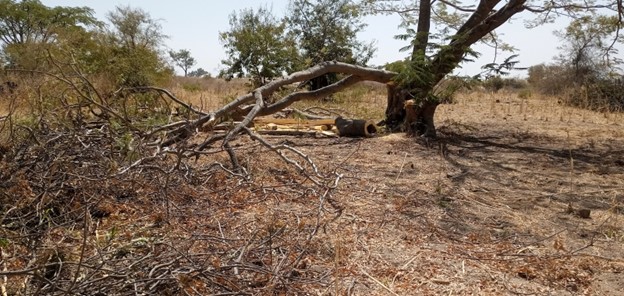
With eroded farmlands and diminished grazing lands, – due to the desertification of the land that runs deep every year – the competition between the herders and farmers in the area intensified and become blatant.
It is not only the indiscriminate cutting down of trees that worries the defenceless locals but its devastating effect on the environment and human lives.
For instance, in June 2022, a windstorm, believed to be unprecedented, wreaked havoc on the communities neighbouring the ranch.
Over one hundred buildings – public and residential – were shattered down by the windstorm accompanied by dust the villagers said.
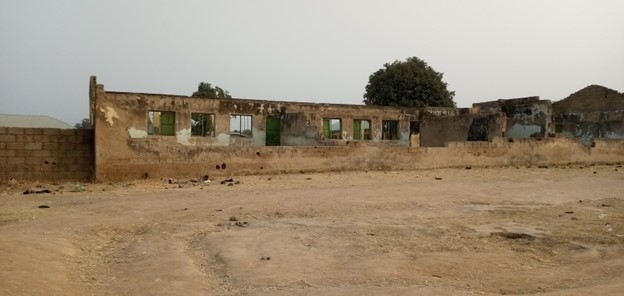
HOW ILLEGAL LOGGING IS AFFECTING HOST COMMUNITIES
The dark windstorm could not be forgotten by the villagers soon, only if more dreadful one strikes, “its devastating effect remained unabridged, the village head of Nasarawa, Zungur District, Ibrahim Usman, said.
Amina Abubakar, 50, a resident of Dajin community of Tafawa Balewa local government, a community about 8 km away from the ranch, recalled when she was amassing her clothes against being doused by rainwater. Unknown to her, it was not a usual thunderstorm – but a combination of horrible wind and dark dust that would leave several locals in agony.
Amina argued that the residents have never seen the like of such a deadly windstorm in the history of the area, “The storm was full of sand with terrible sounds. It was on Friday”, she recalled.
She told The ICIR that the wind wreaked havoc and left many people with different degrees of injuries and several buildings in tatters.
Her daughter Zainab Abubakar, 18, sustained a leg fracture while two others sustained injuries on that ‘black Friday’, “and everyone ran for his dear life”, she said.
“It was totally bizarre weather. We were coming back from a stream close to our house when the storm started blowing hard and we missed our path occasionally. It was frightening, and we thought it was the end of the world.”
World Wildlife Day: Bauchi govt pledges to revive Yankari Game Reserve to center of tourism
Amina explained that the wind surge hit several residential houses in areas like Liman Katagum, Jamda, Mararaban L/Katagum, Galambi, Zungur, Luda, Baram, etc in Bauchi and some parts of Tafawa Balewa Local Governments.
Hassan Musa, the Chiroman Jamda bemoaned the excessive water inflow to their homes in the rainy season.
He explained that the land degradation in Jamda community causes intermittent flooding into their residential apartments giving the residents sleepless nights.
“Last year, we complained about the trenches being filled by sand, it was futile, and they are still advancing and wreaking havoc on locals”, he said.
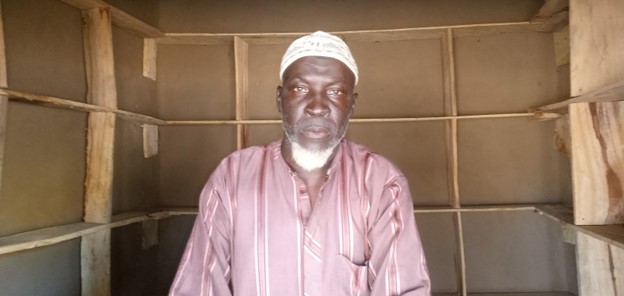
The new road constructed that passed through the community created excitement on residents’ faces, Chiroma held that the marauding waters spewing into the houses during the rainy season dashed their smiles.
“We pleaded with them (road constructors) to help make some culverts and drainages or to fill the trenches, they finished the road and left,” he told The ICIR, but they did not.
He grieved that the trenches have advanced to the village and increased every year, “We have a lot of problems, but the most pressing one is these trenches and troughs throughout these places.”
For Bala Musa, another victim, the brazen windstorm was the repercussion of the persistent cutting down of trees in the area for timber production and charcoal making.
With two trees grown at his house, Musa said they could not resist windstorms “because all other trees in the area were cut down and few ones left uprooted by the windstorm.”
“When there were trees here just about five years ago, you can’t stare at those places. But the timber and charcoal makers continued cutting the trees unchallenged; the trees are no more now”, he stressed.
Musa explained that he lost his two residential houses, his five livestock in 2022, and one other alongside his house furniture a couple of years earlier due to the seasonal windstorms, “I remained for several months without a house,” he stated.
Musa who is currently renting a house in Bayara, a suburb of Bauchi town, recounted that he has never seen such a dreaded windstorm with house roofs flying over people.
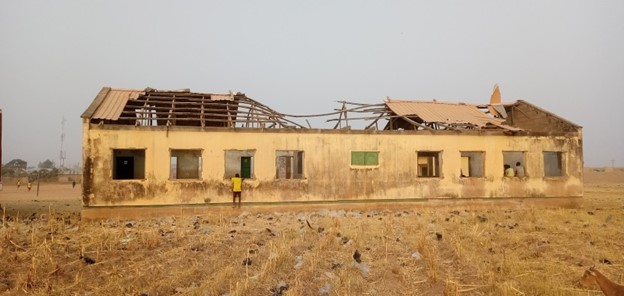
He noted that he gets terrified whenever he sees thunder because it reminds him of the last year’s devastating June incident.
Musa held that the changes in the weather in the area started in the last five years, arguing that the alterations and consequences of deforestation increase yearly.
He explained that he used to think that the storms were inevitably natural disasters, he later learned that trees play a pivotal role in wind protection, absorbing and slowing down the flow of water, as well as regulating the local climate.
He alleged that the horrors are being done under the nose of the staff of the Galambi Cattle Ranch, “they get permission from the guards even before starting their work”, Musa said. “While others preferred working during the night on some occasions.”
FARMERS PAIN…
In Mararan Katagum, a community about 20 km from Bauchi, the capital of Bauchi state, and about 4km away from Galambi ranch, Aliyu Mohammed, 37, a peasant farmer, stands on a bank of a stream close to his farmland, staring at the deforested landscape.
With the presence of some shrubs and a few saplings, the encroaching desert is obvious and could be defined by everyone.
He said about a decade ago, Galambi ranch was a forest with decent vegetation good for the ecosystem and pride for people who had lived there for generations.
Shades and leaves from the varied trees adorned the ranch with fertile soil, a haven for farmers and herders, and even a tourist centre for local visitors.
He argued that deforestation of the area for timber production, charcoal, firewood, and farming has consumed a larger portion of the ranch, thereby exposing the land to “land degradation.”
Bauchi Police Arrest Local Chief, 6 Others Over Communal Clash
“Today, besides these trees, you can see, one here and the other there, all others were cut down for timber production, charcoal, and domestic activities.
He said the wanton destruction of the forest resources was intensified just a few years ago. “This place you see over there, you could not see it six years back – the vegetation was thick”, he said.
Mohammed noted that their harvests are significantly declining on a yearly basis. “Despite cultivating larger farmland, the harvest is very poor. In the last seven years, I was generating tremendous farm produce, but now, is moving backward every year.”
HERDERS GROAN…
Further, into the bushes of the ranch, a 23-year-old herder Musa Ja’oji, recounts a similar ordeal. “Nothing is left in this bush now,” he lamented.
He said edible grasses parch up sooner than required – the herders and shepherds rely on stored fodders and feeds, as the straws do not last long, forcing them to sell their skeletal cows at extremely low prices.
“By March you can’t see anything here for animals to feed on; they will all finish and no foliage or even dried grass for them. Animals are hardly managed here in these years; we will soon move southward for greener pasture”.
“It’s December now. The stalks of the crops are still remaining in farmlands, that’s the reason you can see them (cows) strong and healthy so far”, Ja’oji stated.
Ja’oji, while bemoaning the illegal cutting down of the trees, corroborated that it is the levity of the government officials. “How can someone enter here with a cutting machine without their (staff) knowledge?”
During The ICIR’s visit to the faraway part of the ranch, only some of the areas had some big trees that could help thwart windstorms and, sadly were also under destruction.
Some trees presumably planted for environmental protection purposes, such as Neem trees (Azadirachta indica) and Gmelina Arborea were also bladed to the ground apparently for timber production as shown in this video clip.
At the aged structures of the ranch deep inside the area, seven trees were cut down for timber just a day before the visit, and another nine semi-dried ones were axed down for charcoal and other domestic reasons.
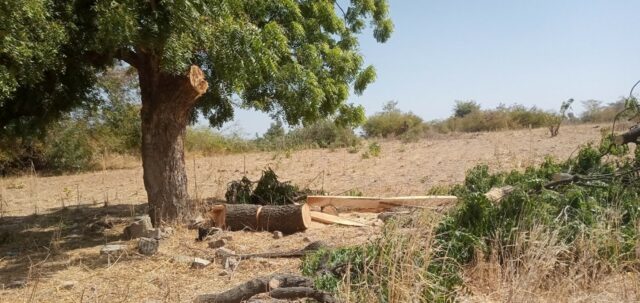
The findings suggested that the entire ranch would be stripped of trees in a couple of years, of the toiling saplings unless the destruction is halted.
TIMBER PRODUCERS CLAIM PROFESSIONALISM
Amadu Salisu, a timber producer, claimed that he selects trees for timber production meticulously and professionally, “I consider the trees I cut. There are some of us that cut trees indiscriminately, but the majority of us are professionals and diligent in selection.”
He insisted that there is no relationship between the trees destroyed and the abnormal windstorms in the communities.
Amadu Salisu revealed that there are several other timber producers who get trees from the ranch, noting that some of them are doing so with the knowledge of the ranch staff.
Salisu declined to comment on whether they present incentives or tokens to the staff for their business.
Ali Abdullahi, a charcoal maker and wood fetcher, said the business is his source of income, “do you think I am doing this willingly? This is a tedious job, and I am doing it with no alternative. It has become my source of income.”
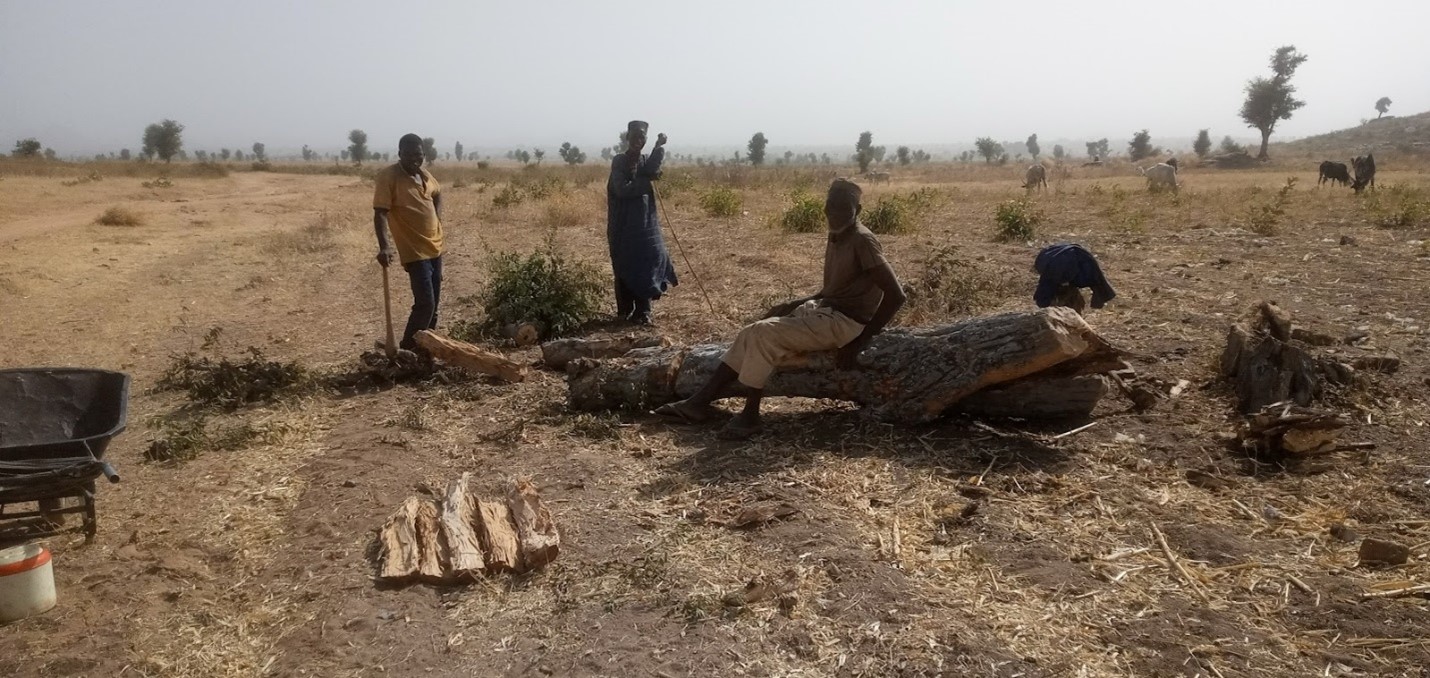
The 68-year-old man argued that if he had better work, he would not go to the bush for wood or charcoal making.
He attributed the windstorm ravaging communities as a natural phenomenon while the changes as “universal and inevitable.”
Abdullahi asserted that the Galambi ranch’s staff have never sent him out of the area for his business, and he doesn’t know them personally.
About two-thirds of the expansion of desertification can be attributed to changes in natural climate cycles, while the remaining third is likely “due to human-driven shifts”, according to a study in 2018.
Deforestation and other human activities are some of the factors exacerbating desertification every year. Some of these issues perists depite funds allocated for ecological projects by the federal government.
GOVERNMENT REACTS…
The managing director of Galambi Cattle Ranch, Sani, said the management of the ranch and the Bauchi State government are doing the needful to protect the ranch from deforestation. “We don’t allow them to cut trees from the ranch”, he claims.
Sani stated that they prosecuted an offender in 2021 at Bauchi State Environmental Mobile Court, which prosecutes culprits in line with environmental laws in the state.
Tinubu’s Private Jet Registered in Cayman Island That Hides Ill-gotten Wealth for Crooks
According to him, in the last couple of months, they have not received a report of tree cutting in the ranch, and they don’t “officially” allow the destruction of trees for whatever reason.
Sani debunked the claim that some of the staff are abating the menace by conniving with culprits for a token, though he could not deny the broad defacement of the vegetation in the ranch.
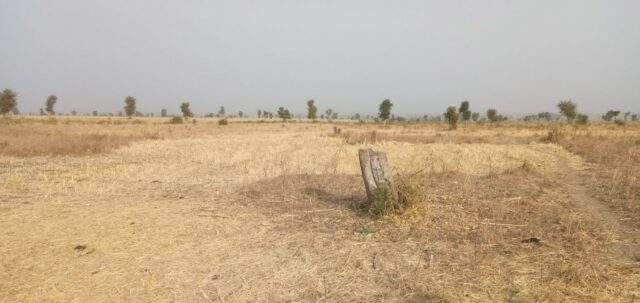
He said the cutting of the trees in the ranch is intermittent and they are doing their best to halt it, “so anyone that tells you that we are not trying is lying. We have an official vehicle that whenever we receive a report of such acts, we would swiftly rush to the scene and apprehend the offender.”
“As far as Galambi Cattle Ranch is concerned, we don’t allow it, and our staff working there inform us if there is any intrusion,” he argued.
Responding to why the ranch is stripped of vegetation and proven evidence of destruction of the trees based on The ICIR’s visit to the area, he said “You know the ranch is a big land. It’s about 7,000 hectares of land, we can’t cover everywhere at a time.”
With the continuous defacement of trees in Bauchi State Galambi Cattle Ranch amid the authority’s nonchalant attitude, the area would completely be stripped of vegetation, and this would expose villagers’ livelihoods to more environmental hazards.




